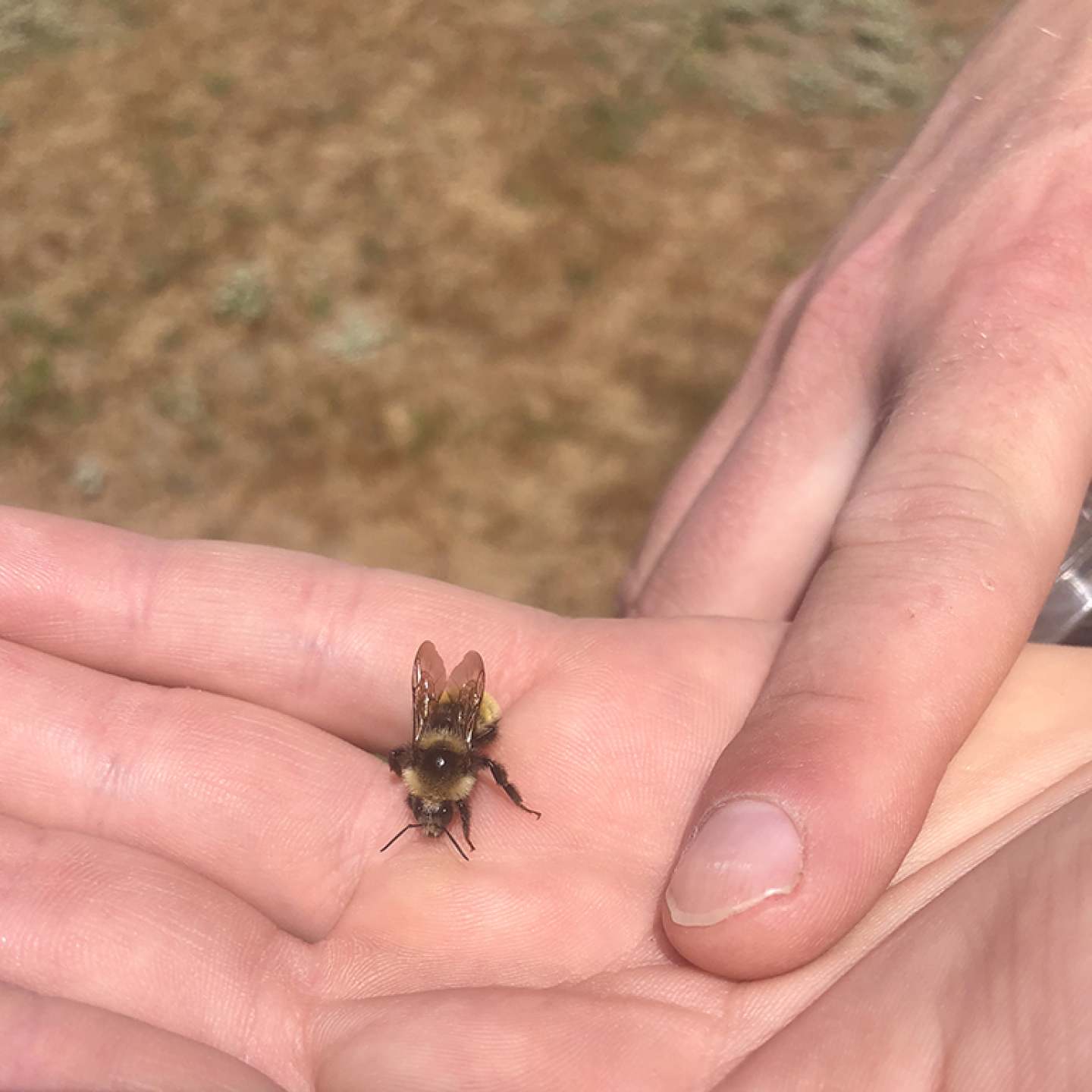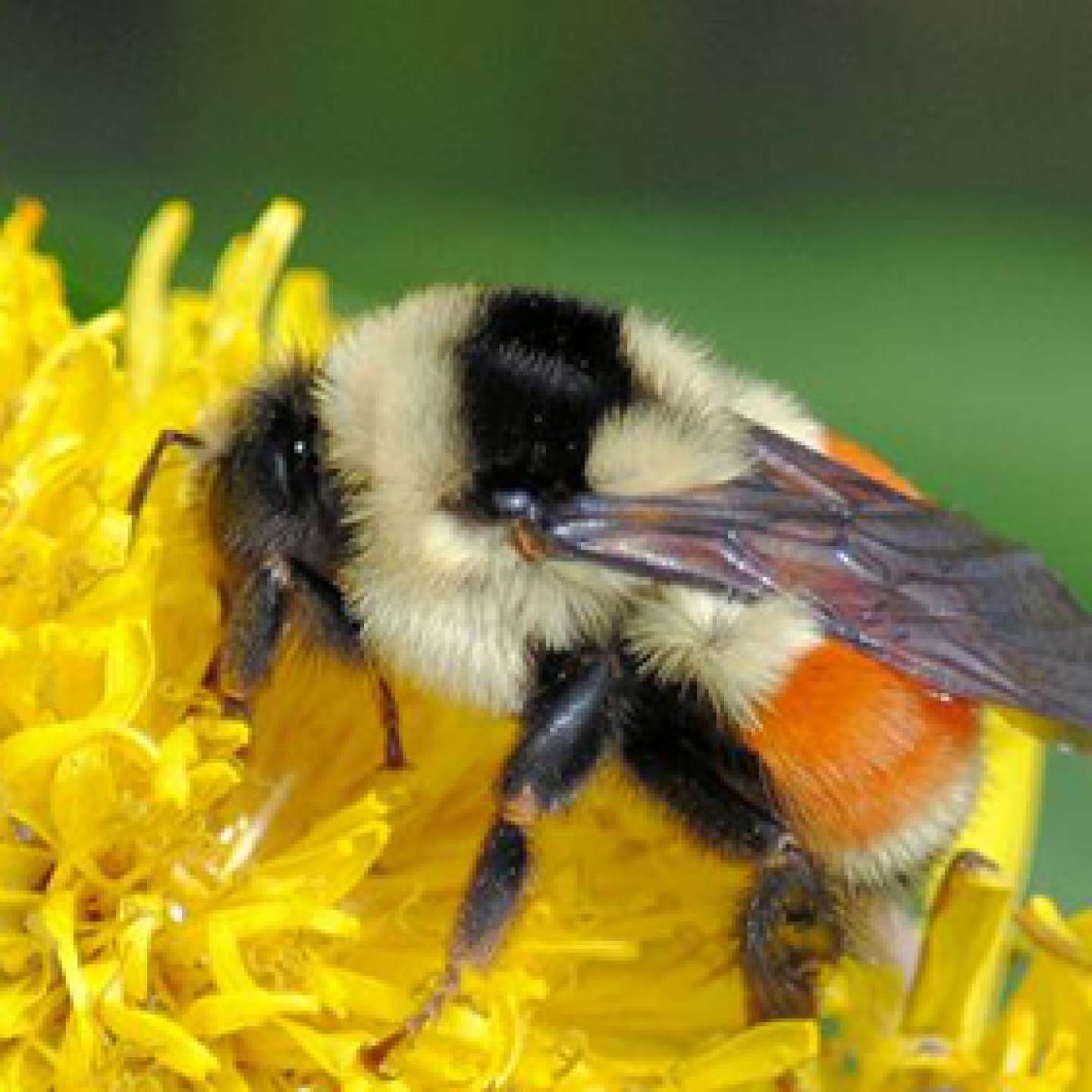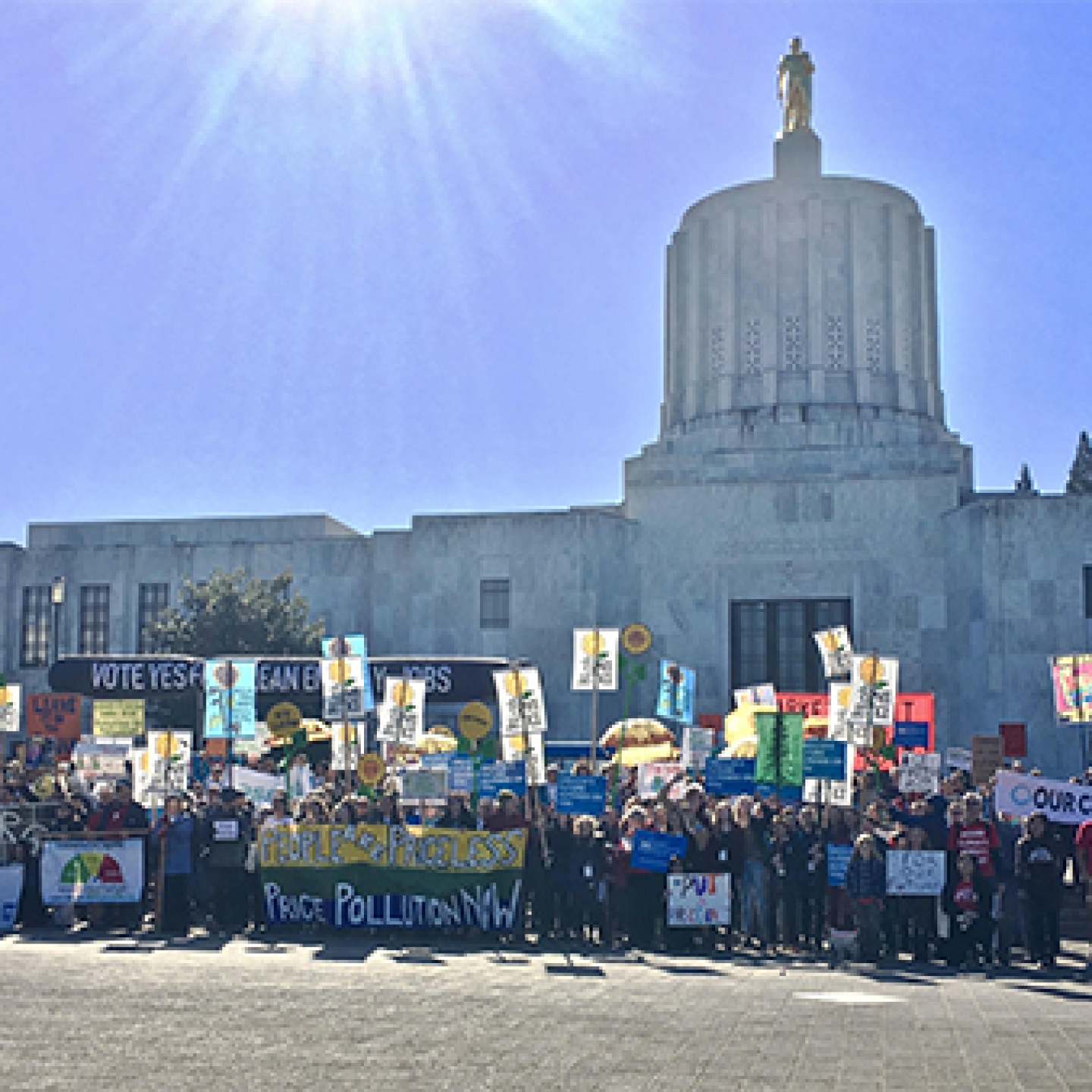I wanted to share my story with you with the hope that it will inspire you to take action. I have lived in the Eugene area for over 15 years. My grandparents moved here in 1980 and bought a beautiful farm just outside of Cottage Grove. As an environmental justice organizer for Beyond Toxics I have great concerns about the air quality in our state and the effect it has on children.
Counting on pollinators to return
While working alongside other local naturalists and bee-enthusiasts at the 2nd Annual Bee Count, I was thrilled to discover that at least 24 different species of native bees have returned to the Whilamut Natural Area, a rehabilitated prairie habitat north of the Willamette River. This was a remarkable turn-around for this area since non-herbicide habitat restoration efforts were implemented 14 years ago.
Protect Oregon's bees and have a good time doing it!
Important action is being taken across our state to protect honey bees. However, the public is less aware of the critical role Oregon’s native bees play in pollination and maintaining the healthy environment we all enjoy – nor of the threats they face. Did you know eight different species of native bees are currently listed on the United States Endangered Species List?
Earth Week reminds us to fight for environmental justice
This year’s Earth Week celebration offered a twist on the usual flower plantings and electric car demonstrations through a focus on community health and environmental justice.
The first Earth Day celebration in 1970 represented a turning point for environmental awareness and advocacy. That special day followed the passage of the National Environmental Protection Act on Jan. 1, 1970, under the Nixon administration. National leaders were deeply influenced by the heightened public concern about environmental pollution spurred by Rachel Carson’s book “Silent Spring.” Their first steps toward environmental advocacy included the Clean Water Act and the Clean Air Act.
Traversing the gauntlet
Environmental bills don’t always make it through the "gauntlet," known as the Oregon legislative battlefield. There are more obstacles in our State Capitol than any Quixotic environmentalist could hope to vanquish. The Cleaner Air Oregon bill, SB 1541 B-Engrossed, sailed through the Senate today (passing with a unanimous vote!), despite having its own burden of impediments.
Eugene embraces climate justice (on a global playing field)
On February 12th, the Eugene City Council overwhelmingly adopted a resolution to endorse the International Declaration on Human Rights and Climate Change. Our Council and Mayor are standing on the precipice of a new direction to address climate burdens! Foregrounding human rights at the heart of green energy conversations is a response to the ethical quagmire in which our nation is stuck. Placing the dialog into a framework of human rights changes the underlying assumptions of the climate movement from political concerns to principled action, from marketplace considerations to morally-based decision-making.
Stories from the Field
Going head-to-head with corporate lobbyists and lawyers is a fine way to keep your environmental advocacy skills honed! During the nearly two years I served on the Cleaner Air Oregon rule-making committee, I got lots of practice dissecting the duplicitous arguments and twisted claims proffered by industry’s public relations people.
Farmworkers deserve better pesticide rules
More than 1 billion pounds of poisonous pesticides are applied on farms annually in the United States, resulting in as many as 20,000 physician-diagnosed poisonings annually among agricultural workers. University of Oregon environmental studies scholar Sarah Wald puts the number of farmworkers exposed to toxic levels of pesticides closer to 300,000, more than 10 times the official number.
Oregon Farm Workers Are Fighting for Their Lives
I remember, and you might too, feeling virtuous when my family took part in the California grape boycott in the 1970s. I was only a teenager, but to me it meant that I was standing in solidarity with farm workers. I felt a bond, although I’d never met a farm worker as far as I knew.
My small action, combined with the similar ethical choices of millions of others, helped farm workers position themselves to win. And what did they win? What they asked for were basic human rights: safer working conditions, less pesticide exposure, habitable housing and better wages.













